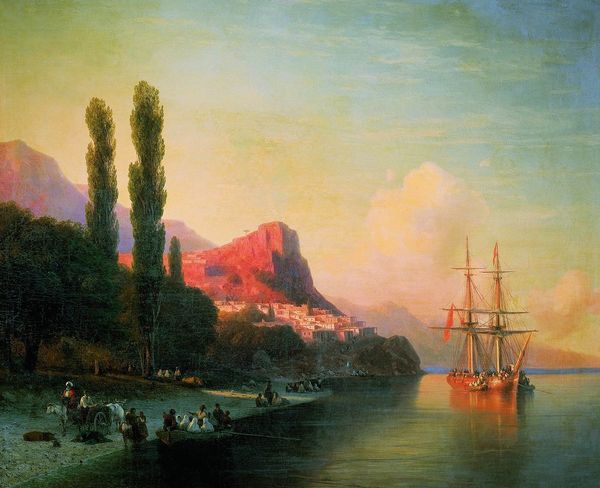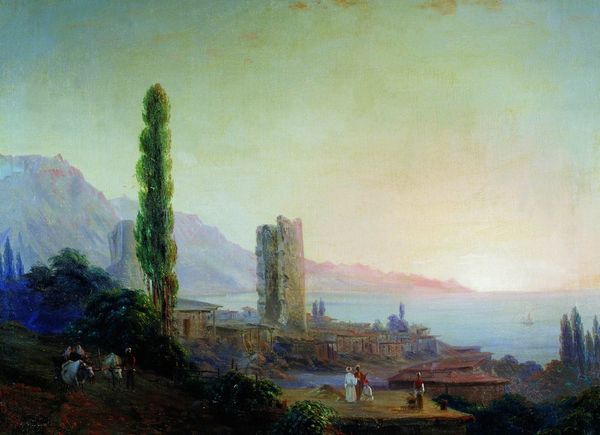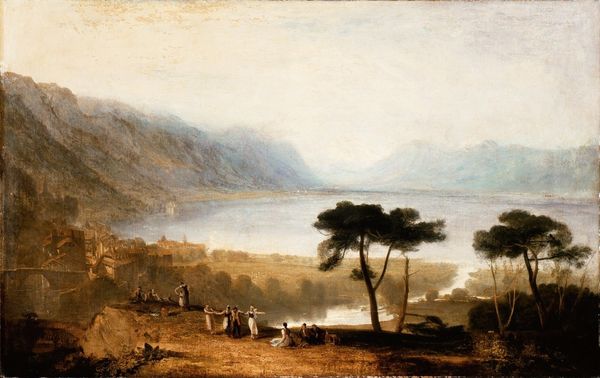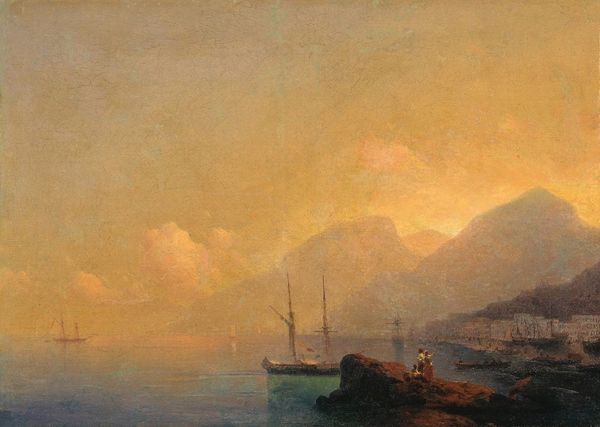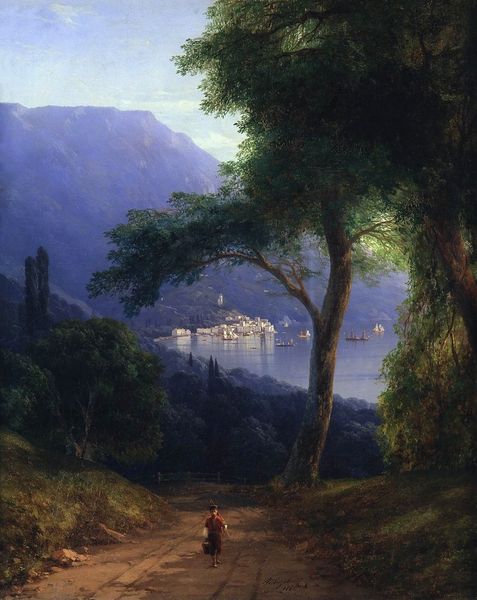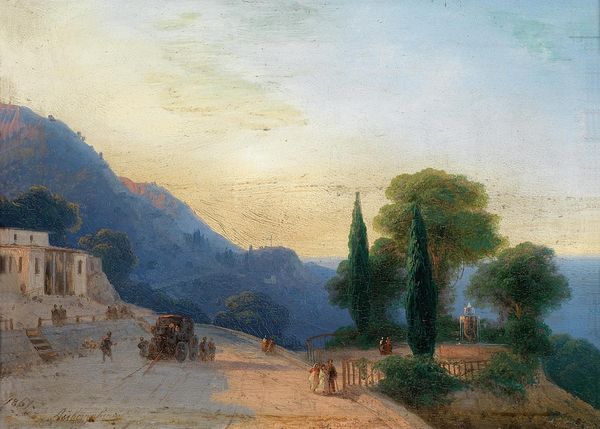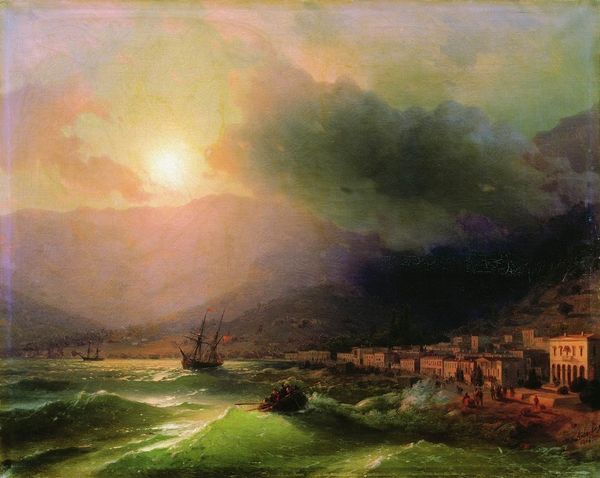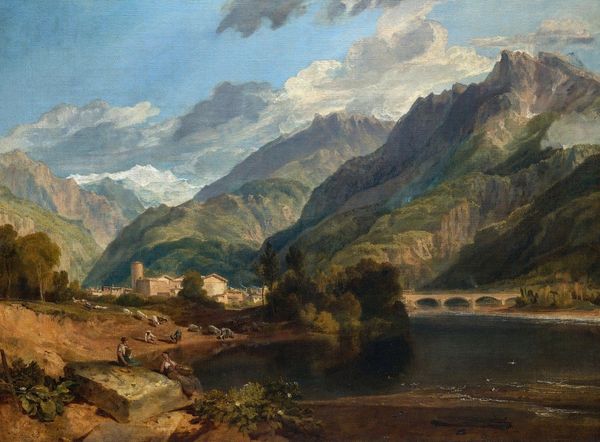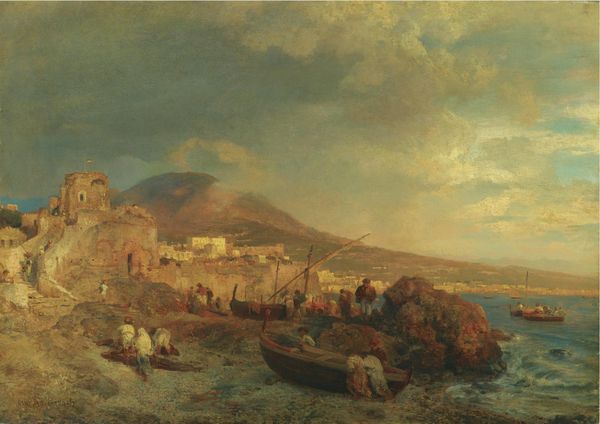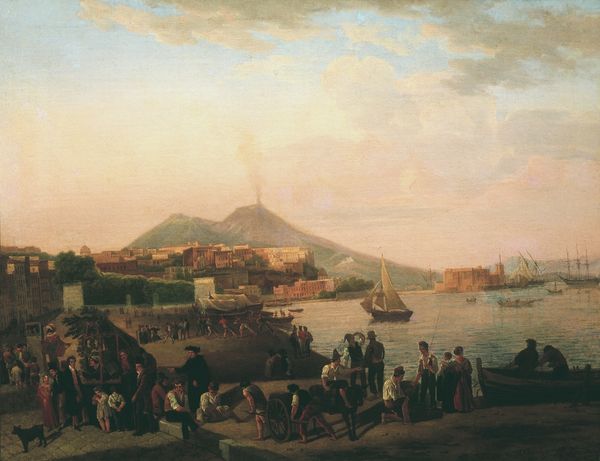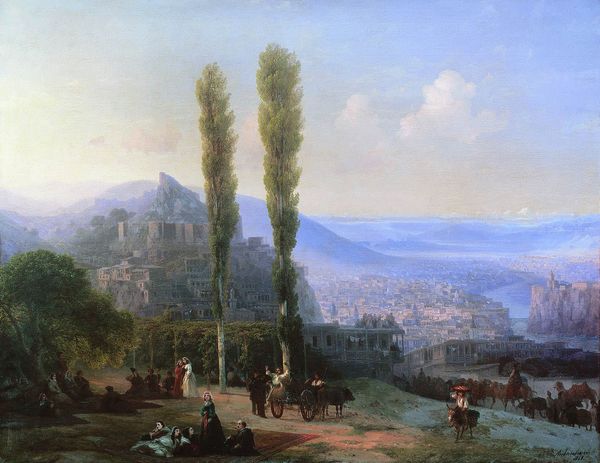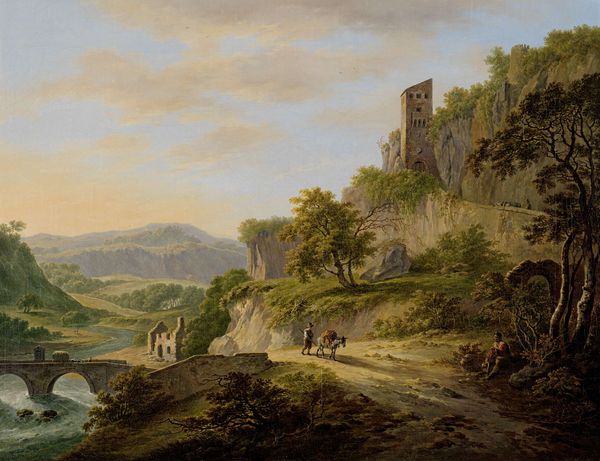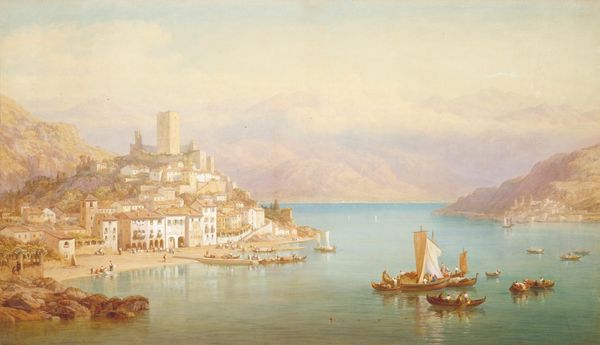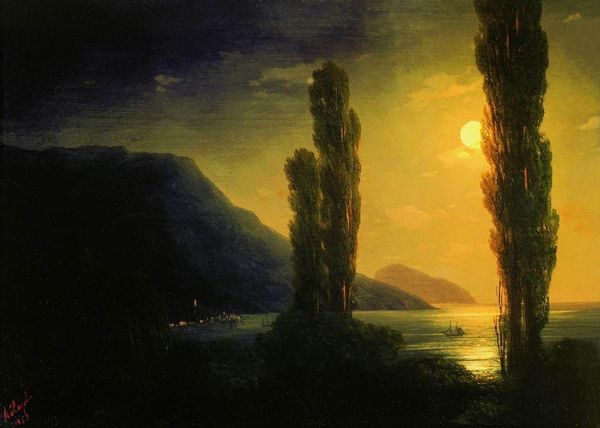
Copyright: Public domain
Curator: Here we have Ivan Aivazovsky's "Alushta," painted in 1878. He’s working with oil paint here, depicting a landscape steeped in history, the Crimean cityscape nestled by the sea. Editor: My first thought? Dreamy, but also...distant. Like a memory viewed through fog. The light, that diffused, almost pearlescent light, creates this hazy effect. It's romantic, in a slightly melancholy way, isn't it? Curator: Indeed. The diffused light speaks to a sense of idealism, so characteristic of the Romantic era. But consider the careful arrangement, the town’s placement beneath the monumental hills. It emphasizes a harmonious relationship between humanity and nature. But on the opposite, there is a boat to symbolize trade and navigation. Editor: That harmony feels precarious though, doesn’t it? I mean, those mountains practically dwarf the town. It’s beautiful, yes, but also a bit intimidating. Makes me think of power, both the natural and the implied presence of the Czarist Russia on the rise. Is that what we're seeing? That tension, between civilization and raw power, land and sea? It almost feels allegorical. Curator: You are intuiting a deep current there, I think. Alushta, strategically placed, was a vital link. Also note the subtle repetition of shapes – the curve of the bay echoing the slopes of the distant hills. Editor: I like that echo! And there's a deliberate arrangement. I mean, the whole thing reads like a stage setting: the tiny figures on the shoreline, the distant ship, even that little carriage on the road—it feels like the beginning of a story, an opera perhaps! Curator: That theatrical reading is not without merit. Aivazovsky staged history as much as he recorded it, and often painted recurring historical events or the figureheads involved. Perhaps in part because these historical events legitimized and romanticized czarist expansion to these territories. Editor: So, it's like history, filtered through a painter's hopes and fears, and the dominant ideology! It starts to feel denser now, knowing the context. The way the light almost conceals more than it reveals, the feeling that anything can happen... Curator: Exactly. It encapsulates an era of grand narratives and uncertain futures. Editor: Well, I walked in seeing a pretty landscape, and I’m walking out pondering the weight of empires. Art history—you always sneak up on me.
Comments
No comments
Be the first to comment and join the conversation on the ultimate creative platform.
